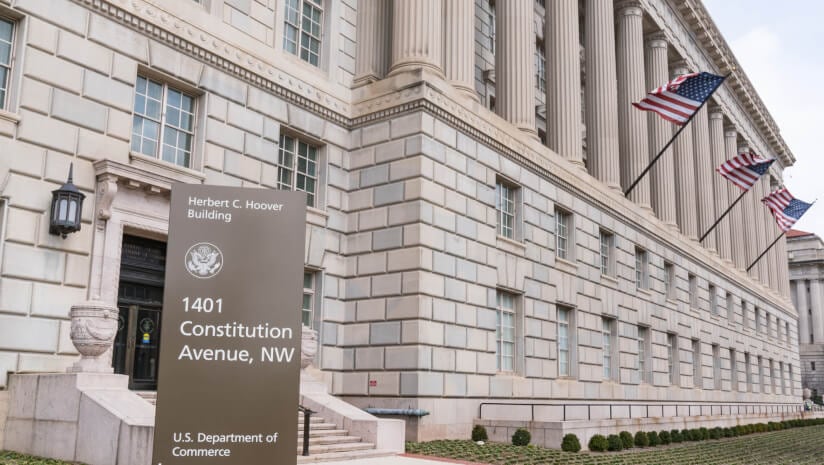The department’s inquiry—launched April 1 through its Bureau of Industry and Security under Section 232 of the Trade Expansion Act of 1962—is focused on whether imports including finished and generic drug products, medical countermeasures and critical inputs like active pharmaceutical ingredients pose a risk to national security.
The 232 Docket for pharmaceuticals closed to comments on May 7 with some 240 submissions, including those from supplement industry representatives. President Trump indicated that he would issue a pronouncement on pharmaceutical tariffs in the next two weeks.
While there was initial reassurance that some supplement products would be safe from the sweeping reciprocal tariffs under Annex II exemptions announced for pharmaceuticals on April 2, trade groups are now concerned that they will be swept up in the investigation and are working hard to distinguish supplement from pharmaceutical.
“The only common element between the nutrients and a number of these active pharmaceutical ingredients is they’re chemicals, and that’s where it ends,” Loren Israelsen, founder and president of the United Natural Products Alliance, told NutraIngredients.
“Nutrients are entirely different with respect to intended use, entirely different in their economics, entirely different in their public health need and use, and should be entirely different in their tariff policy treatment.”
‘Dietary supplements are not pharmaceuticals’
In his April 28 letter addressed to Secretary of Commerce Howard Lutnik, Daniel Fabricant, president and CEO of the Natural Products Association (NPA), noted that unlike pharmaceuticals, dietary supplements are regulated as food under the Federal Food, Drug and Cosmetic Act (FDCA).
“They play no role in manufacturing or distributing finished drug products, medical countermeasures, active pharmaceutical ingredients (APIs) or related derivatives, which are the focus of Section 232’s national security inquiry,” he wrote.
“Supplements are subject to mandatory recalls for safety concerns, ensuring robust oversight without implicating the strategic risks associated with pharmaceuticals. Excluding our industry from this inquiry aligns with the FDCA’s framework and the Department’s intent to address pharmaceutical supply chain vulnerabilities.”
In addition to requesting that dietary supplements be excluded from the 232 investigation, NPA asked that tariff exemptions be expanded to “all essential vitamins, minerals, amino acids and botanical extracts” and for recognition of the supplement industry’s “critical role in public health and infrastructure.”
The Council for Responsible Nutrition (CRN), which submitted comments on May 7, also reminded federal officials that “dietary supplements are not pharmaceuticals,” stating that the availability of dietary supplements does not create the type of immediate or strategic vulnerability that the investigation seeks to address and that tariffs could reduce access to products that enhance Americans’ health and well-being.
“Consumers depend on affordable, high-quality supplements to maintain their health, and U.S. manufacturers depend on stable ingredient supply chains to deliver those products,” said Steve Mister, president and CEO at the CRN. “Tariffs designed to protect national security should not limit access to dietary supplements, thereby endangering American jobs and public health.”
CRN warned that sector-specific tariffs aimed at pharmaceuticals but inadvertently applied to supplements could lead to severe unintended consequences, including supply chain disruptions, product shortages, increased costs to consumers and the offshoring of U.S. manufacturing jobs. It also raised concerns that tariff-induced supply chain stress could increase risks of adulteration in response to increased pressure to cut corners to control costs.
Like UNPA’s Israelsen, the submission noted that while supplements and their ingredients may share some Harmonized Tariff Schedule (HTS) codes with pharmaceutical products, they serve a vastly different purpose and operate in a distinct marketplace.
‘All stick, no carrot’ and crucial to public health
Comments submitted by the American Herbal Products Association (AHPA)—which says it generally opposes wide-reaching country-scale tariffs—encouraged the Department of Commerce to consider alternate, positive incentives for a diverse supply chain.
“This is all stick and no carrot for commodities that require tremendous infrastructure to be viably produced anywhere”, said Robert Marriott, director of regulatory affairs at AHPA. “Positive incentives, not tariffs, are the best and only path to domestic, scaled manufacturing.”
Positive incentives mentioned included preferential treatment for vital nutrients like vitamins and amino acids imported from countries with established capacity that are not current sources, or direct federal support for domestic production.
CRN acknowledged that while some dietary supplement ingredients can be sourced domestically, most cannot feasibly be produced in the United States at scale in the near term and requested that the Department of Commerce distinguish between ingredients with robust U.S. manufacturing capacity and the many that depend on international sourcing.
It did, however, note that the majority of dietary supplement products consumed in the U.S. are produced domestically and that the industry supports a substantial number of American jobs, contributes significantly to the national economy and provides notable tax revenue at all levels of government.
The Global Organization for EPA and DHA Omega-3s (GOED) also took the opportunity to comment, as two of the Annex II codes pertained to EPA and DHA omega-3 oils. It focused on the argument that all omega-3 oils should be exempt from tariffs as they are crucial to maintaining the health of Americans.
“We shared with the Department of Commerce the tariff codes provided by our members and requested an exemption for all based on the fact that, ‘These fatty acids are crucial to the viability of virtually every cell in the human body and are of vital importance across the lifespan, beginning with prenatal health…and continuing through to adulthood,’” the organization shared in a statement.
Similar views were submitted by the other supplement trade organization, including UNPA, which commented that unintentionally sweeping up dietary supplement in the 232 investigation would threaten Americans’ ready and affordable access to these critical nutrients.
“Over 170 million Americans depend on critical nutrients and other dietary supplements as part of their efforts to improve their nutrition and stay healthy, including over 70% of Americans 60 and over,” Israelsen wrote in his May 5 comments.



